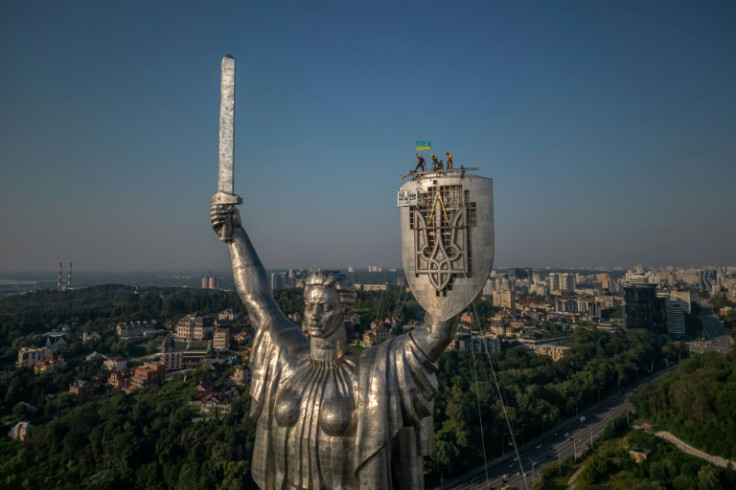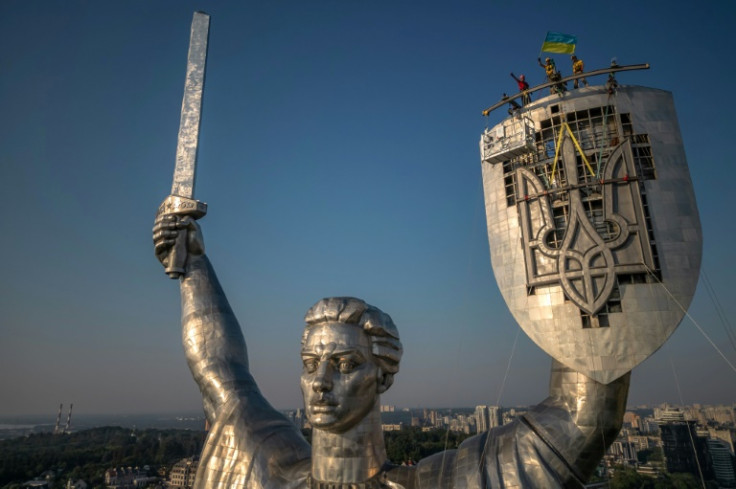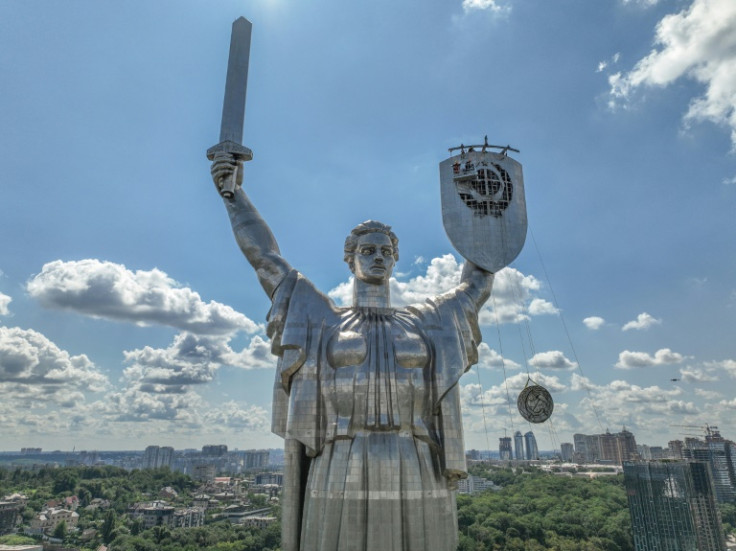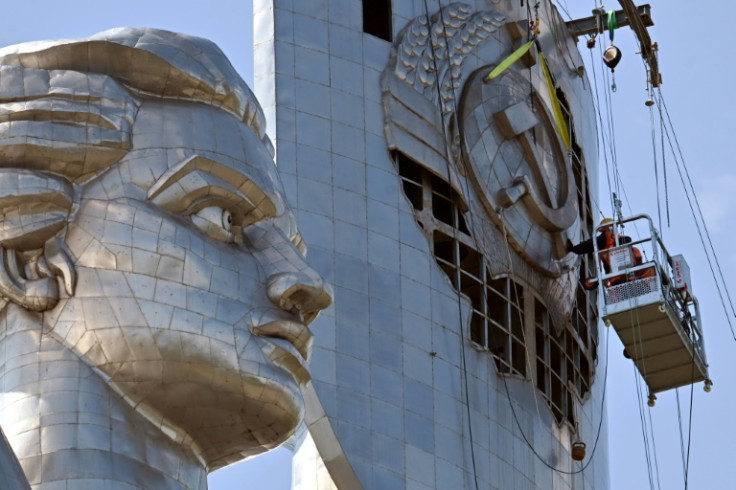Ukraine Puts Trident In Place Of Soviet Emblem On Tallest Statue

Ukraine's trident coat of arms glimmered on the shield of a gigantic statue overlooking Kyiv on Sunday, after construction workers winched it up to replace a Soviet hammer and sickle.
The operation to put the trident in place of the Soviet emblem on the 62-metre-tall steel figure of a woman, known as the Fatherland Mother, began last month, as Ukraine purges its public areas of reminders of Russian and Soviet rule.
Workers lowered the hammer and sickle from the Soviet emblem that originally decorated the shield on Tuesday.
On a bright sunny morning shortly after 6 am (0300 GMT), construction workers and industrial climbers winched the 7.60 metre-tall trident into place, pending final adjustments.
They posed waving the Ukrainian flag on top of the shield.
The silvery monument stands high on the bank of the Dnieper River, brandishing a sword and shield.
The tallest monument in Ukraine measuring 102 metres including its base, it was erected in 1981 as a memorial to Soviet victory in World War II.
Now it is part of a museum about Ukraine's role in World War II, which has changed its displays to reject Soviet narratives.
The statue is also set to be renamed Ukraine Mother because its current name has Soviet associations. The hammer and sickle will become a museum exhibit.
The museum's general director, Yuriy Savchuk, told AFP that he had received a message of congratulations from the office of Ukrainian President Volodymyr Zelensky on the raising of the trident and hoped the leader would attend an official opening.
"It's really nice that we've completed a certain stage of the work," he told AFP.
"It's a beautiful, sunny day, the Dnieper (river) is sparkling, there is no air alert. The trident is on the shield, Glory to Ukraine!," he said, after shaking hands with the construction team and passing them Zelensky's message.
"Glory to Ukraine! Glory to the heroes! Glory to the Armed Forces!", said the trident's sculptor Oleksiy Pergamenshchyk, waving a Ukrainian flag at the base.
"I'm happy because it's just right -- it's not too big, not too small, not too thin -- it's just right," he told AFP.
He said he was planning to go up later and work from a cradle to perfectly centre the trident and finish the steel surface so "it will look as (if) it was there originally".
"I'm grateful that I was put on this task and I hope the Ukrainian nation and Ukrainian people will be happy with it."
"We are certain that the works will be completed by our national holidays, the flag day (August 23) and Independence Day," Savchuk said.
The construction project has suffered several delays, not helped by numerous air alerts that forced the team to shelter in a cellar.
Work had halted at dusk on Saturday, with the trident only raised around 24 metres.
The symbolic project comes after Ukraine passed a law on "decolonisation" of place names and banning symbols of "Russian imperial policy", which entered force last month.
"We're talking about the necessity to bring in changes to toponymics (geographical names), to make changes to various monuments that are located across Ukraine," said acting arts minister, Rostislav Karandeyev, standing at the base of the monument on Saturday.
"It's all important, although of course it should all be done wisely and with the right approach, with understanding that there are priorities," the official told journalists.
These "financial priorities" are "the costs of strengthening Ukraine's defence capabilities," he added.
The total cost of replacing the hammer and sickle with the trident is reported as $758,000, paid for by donations and sponsorship rather than state funds.
A survey by the culture ministry last year found that 85 percent of Ukrainians backed removing the hammer and sickle.



© Copyright AFP 2025. All rights reserved.





















